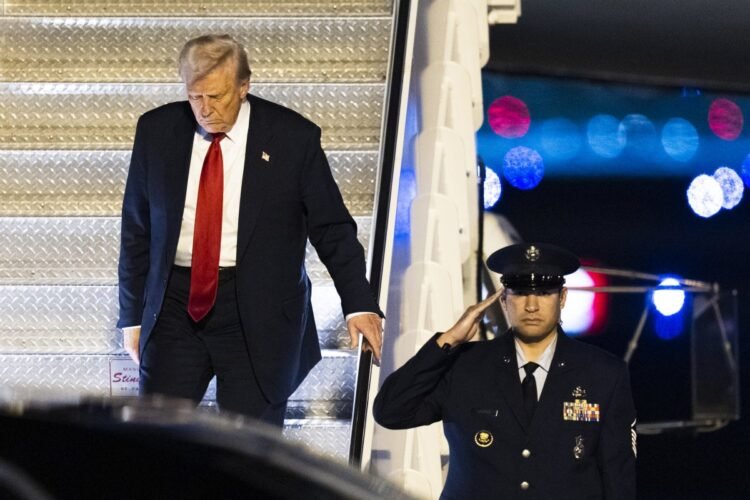A federal judge has blocked the Trump administration from deporting Venezuelan gang members under an obscure 18th-century law that the president invoked just hours earlier to expedite their removal from the U.S.
On Saturday evening, U.S. District Judge James E. Boasberg issued an emergency order to prevent the government from deporting migrants identified as members of the Venezuelan gang Tren de Aragua under President Donald Trump’s new proclamation. The ruling came as planes carrying deportees were already en route to El Salvador and Honduras.
“I cannot wait any longer. I am obligated to act,” Boasberg stated during an emergency hearing filed by the ACLU and Democracy Forward. He ordered that any planes already in the air be turned around, emphasizing that a temporary halt on deportations would not harm the government, as the individuals would remain in custody.
Trump Invokes Rarely Used Alien Enemies Act of 1798
Trump’s proclamation, issued just an hour before the court hearing, declared that Tren de Aragua was effectively “at war” with the United States and posed a significant threat to national security. To justify immediate deportations, he invoked the Alien Enemies Act of 1798, a wartime law that grants the president broad powers to expel foreign nationals from enemy nations.
The law has only been used three times in U.S. history — most notably during World War II, when it was used to detain Germans, Italians, and Japanese-Americans. This marks the first time it has been applied against a criminal organization rather than a foreign state.
Immediate Legal Pushback
The ACLU argued that Trump had no authority to use the law against a criminal gang, which is not a recognized nation. The Justice Department, however, defended the president’s decision, stating that the law allows the president to take swift action against threats to national security.
“This would severely undermine the president’s authority to protect the nation,” argued Deputy Assistant Attorney General Drew Ensign, citing a 1948 case where the Supreme Court allowed President Harry Truman to detain a German citizen under the same law, even three years after World War II had ended.
Judge Boasberg acknowledged that the legal arguments were complex but ruled that the ACLU had a strong chance of success in challenging the proclamation. He temporarily blocked the deportation of all individuals targeted under Trump’s order for 14 days and scheduled a follow-up hearing for Friday.
The Motivation Behind Trump’s Move
Trump’s decision to target Tren de Aragua comes as he ramps up his anti-immigration rhetoric ahead of the 2024 election. The gang, which originated in Venezuelan prisons, has gained international attention in recent years and has been formally labeled a “foreign terrorist organization” by the Trump administration.
Trump claimed the gang was “invading” the U.S. and accused the Venezuelan government of allowing criminal organizations to operate freely. By invoking the Alien Enemies Act, Trump aimed to bypass traditional immigration courts and immediately deport anyone the government labeled as part of the gang.
Concerns Over Presidential Power
Immigration advocates warn that Trump’s actions could set a dangerous precedent. The ACLU’s Lee Gelernt argued that if the courts allow this move, the Trump administration could use the same strategy to target other migrant groups, such as MS-13.
“This opens the door for the president to sidestep immigration law entirely and expel anyone he deems a threat, without due process,” Gelernt warned.
The Justice Department, however, insisted that Congress had already expanded presidential authority to act against “transnational threats” in the wake of the 9/11 attacks.
What Happens Next?
For now, the deportations are on hold, but the Trump administration is expected to fight the ruling aggressively. The judge’s temporary restraining order will remain in place for two weeks, with a more in-depth hearing scheduled for Friday.

 English
English



























































